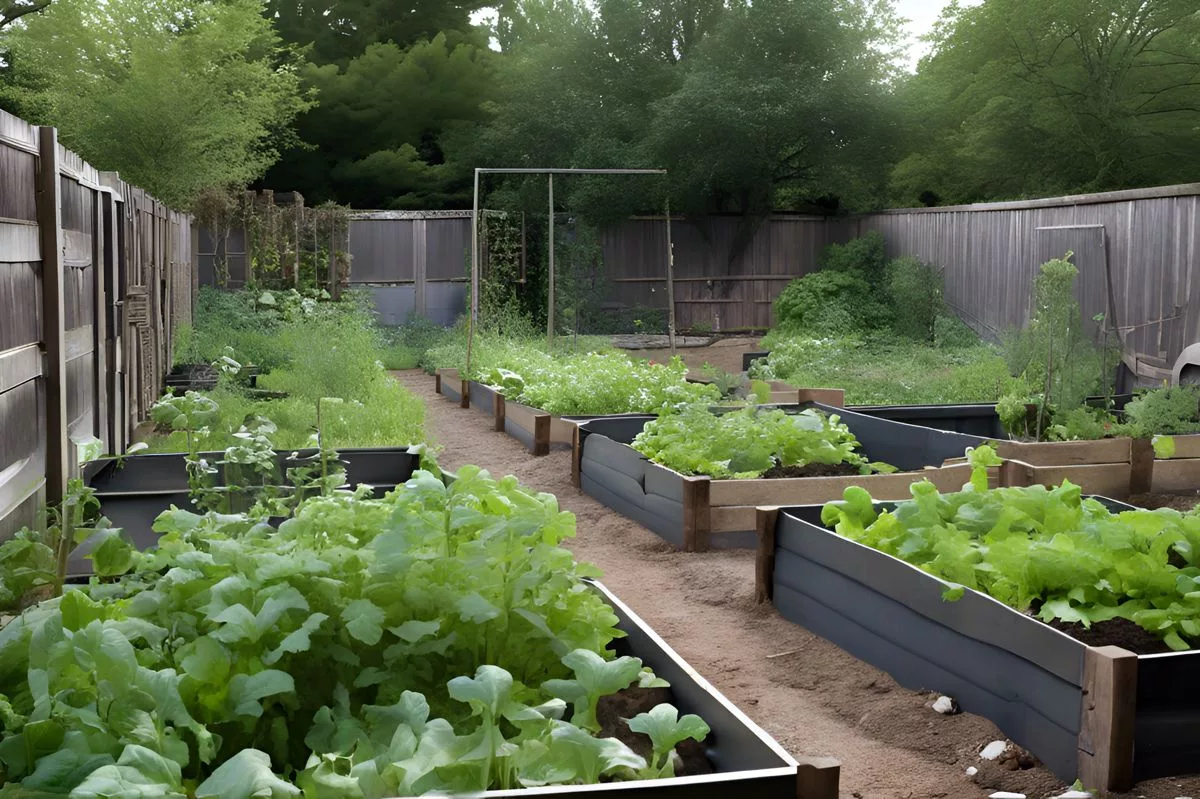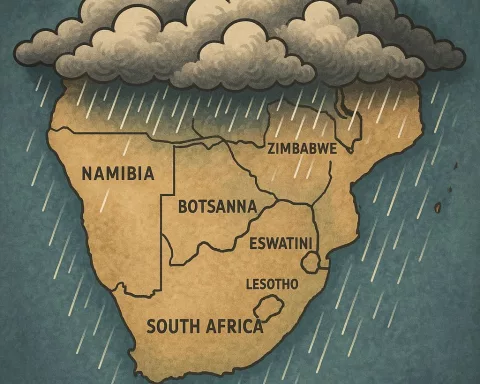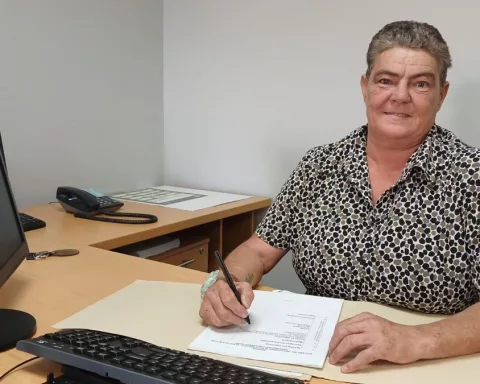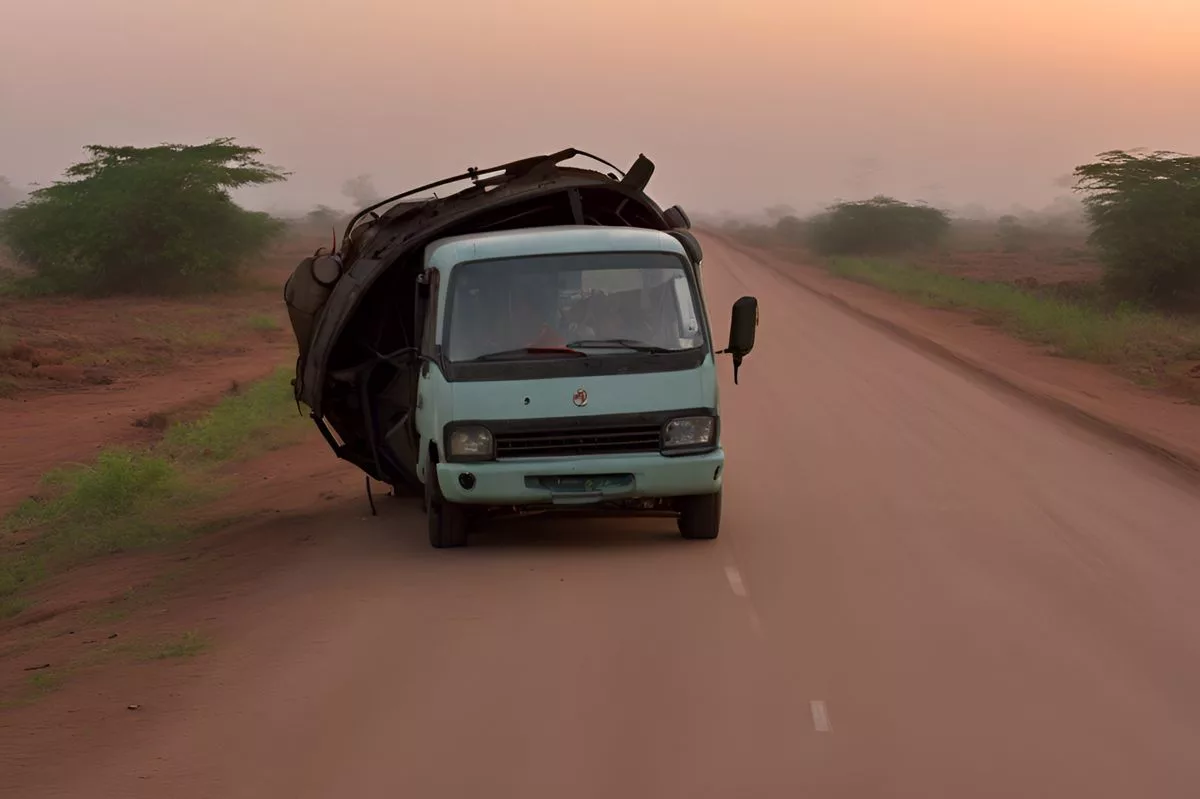In Citrusdal, farmers face tough times as floods destroy their crops and cut off their roads. Their once vibrant fields of vegetables have turned into sad reminders of loss. Despite rising food prices and the struggle to find enough to eat, these farmers show incredible strength and teamwork. With a passionate spirit and hope for better harvests, they continue to care for their land, dreaming of brighter days ahead. Their story is a powerful reminder of resilience and the deep connection between people and nature.
What challenges do farmers in Citrusdal face?
Farmers in Citrusdal confront severe challenges including devastating floods, rising food prices, and isolation from main roads. Their crops have been destroyed, leading to food insecurity, yet they exhibit resilience through community efforts and hope for future harvests despite ongoing climate impacts.
Dreams Dashed by Nature’s Wrath
Citrusdal, a charming town set against the backdrop of South Africa’s Cederberg region, once thrived with the diligent efforts of its small-scale farmers. These dedicated individuals nurtured their aspirations alongside rows of cabbages, cauliflowers, onions, and potatoes, transforming fields into verdant sanctuaries of productivity. Yet, the unpredictable whims of nature have turned these dreams into overgrown landscapes, leaving behind only the haunting remnants of deceased plants.
For two consecutive winters, the agricultural community of Oranjeville battled severe floods, which disrupted the natural cycle of growth and abundance. Typically, their fields would burst with a variety of vegetables, but instead, they now stand as silent witnesses to the devastation that swept away both crops and hopes. In July 2023, the plight of these farmers came under the spotlight as GroundUp chronicled their struggle to secure enough food for survival after relentless rains ravaged their produce.
The Western Cape Department of Agriculture estimated the impact, placing the damage to agriculture and infrastructure across the province at a staggering R1 billion. More than a year later, optimism remains a scarce commodity among the farmers. Janelle Simons, a committed member of the Surplus People Project (SPP), remains one of the many affected. Together with nine fellow farmers, she tends to a plot of municipal land in Oranjeville. However, their perseverance has yielded minimal results, as evidenced by the tangled and neglected gardens that greeted GroundUp’s visit. Sparse cabbages dotted the landscape, and one patch cleared for onion seedlings stood as a testament to their unwavering spirit.
Facing Isolation and Rising Costs
“The fields were impassable,” Simons lamented, recounting how attempts to work the land were thwarted by the unyielding ground. The floods of 2023 not only battered Citrusdal but also cut it off from the outside world by damaging the main road access. The deluge forced families to abandon their homes, both formal and informal, leading to evacuations and a community left in turmoil.
The isolation brought about by this disaster caused a sharp increase in food prices. Lawrence Jonas, another farmer in the area, shared the difficulty of witnessing basic staples transform into rare luxuries. In the past, he relied on his own harvests, but now, Jonas looks to the kindness of others for sustenance. Despite these challenges, his dedication to farming remains steadfast. “Farming is my passion,” he expressed, as he prepared the soil for what he hoped would be a fruitful harvest in December.
Albertus Jonas, a seasoned farmer with roots stretching back to the 1990s, offered an insightful perspective shaped by years of experience. Understanding nature’s cycles, he noted, “This flood was harsh, but not unique.” His words reflect the cyclical nature of farming, where each season holds the promise of a better year. “Perhaps next year will be kinder,” he mused, acknowledging the inherent ebb and flow that defines a farmer’s journey.
A Broader Context of Resilience and Adaptation
The perseverance displayed by Citrusdal’s farmers resonates with larger themes within agricultural history. It recalls the evocative pastoral landscapes immortalized by Romantic artists like John Constable, whose works captured both the splendor and the ominous power of nature. This connection, celebrated by the Romantic movement, parallels the challenges these farmers face today, as they strive to reestablish balance between their livelihoods and the earth’s bountiful gifts.
Their enduring spirit also echoes the philosophy of agrarianism, which emphasizes a symbiotic relationship between humans and the environment. Pioneers like Wendell Berry have long advocated for sustainable farming practices and the strengthening of local communities. By embracing these principles, the farmers of Oranjeville serve as custodians of tradition and innovation, preserving their heritage while adapting to contemporary challenges.
However, the broader implications of climate change cannot be ignored, as they exacerbate the difficulties faced by agricultural communities. With global weather patterns becoming increasingly erratic, the necessity for innovative and adaptive strategies is crucial. Within this context, the farmers’ determination to rebuild becomes not only a personal mission but a reflection of humanity’s collective battle against the forces of nature.
Community Unity and Hope for the Future
In defiance of adversity, a sense of community and collective resolve persists among these farmers. Their efforts to recover are supported by initiatives like the Surplus People Project, which fosters collaboration and resource-sharing. Together, they embody the resilience and ingenuity required to confront the challenges posed by a shifting climate.
As we navigate this intricate narrative, we are reminded of the enduring bond between humanity and the land. The farmers of Oranjeville, through their unwavering dedication, invite us to reflect on the countless ways our lives are intertwined with the earth’s rhythms. Their story stands as a testament to the resilience of the human spirit, offering a beacon of hope amid the turbulent seas of uncertainty.
FAQ: Citrusdal Farmers’ Struggles and Resilience
What challenges do farmers in Citrusdal face?
Farmers in Citrusdal face significant challenges, primarily due to devastating floods that have destroyed their crops and cut off their road access. This has led to rising food prices and food insecurity, as farmers struggle to sustain their livelihoods against the backdrop of climate change and natural disasters.
How have recent floods affected the agricultural community in Citrusdal?
The floods in 2023 devastated the agricultural landscape, resulting in a loss of crops and rendering fields unsuitable for cultivation. The impact on infrastructure was extensive, estimated at R1 billion, with many farmers forced to abandon their homes and farms, leading to a state of turmoil within the community.
What are the economic implications for farmers in the region?
The floods have caused a sharp increase in food prices, making basic staples difficult to afford. Farmers like Lawrence Jonas have had to rely on the kindness of others for sustenance, as their own harvests have dwindled. The economic strain has drastically altered the local food landscape, turning previously affordable items into rare luxuries.
How are farmers in Citrusdal working to overcome these challenges?
Despite the devastation, farmers in Citrusdal are exhibiting remarkable resilience and community spirit. Initiatives like the Surplus People Project facilitate collaboration and resource sharing among farmers, helping them work together towards recovery and rebuilding their agricultural practices for future harvests.
What role does community play in the recovery of Citrusdal’s farmers?
Community unity is essential in the recovery efforts of Citrusdal’s farmers. The shared experiences of loss and the collective resolve to rebuild foster a strong bond among farmers. This sense of solidarity helps them navigate their hardships and maintain hope for future agricultural success.
What is the broader significance of the farmers’ resilience in Citrusdal?
The resilience demonstrated by farmers in Citrusdal reflects larger themes of human connection to nature and the cyclical nature of agriculture. Their struggles serve as a reminder of the broader implications of climate change and the necessity for sustainable farming practices, encouraging not only personal perseverance but also a renewed commitment to environmental stewardship within agricultural communities.












